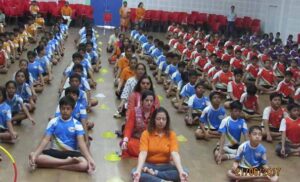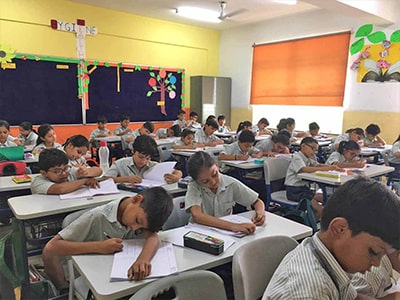If English is your second language, you would want your kids to speak the language fluently. Speaking English is no longer an option but it is an essential need for a bright and successful future. The transformation of the educational landscape further makes it more crucial.
However, learning English speaking skills is not always the top preference of young learners. Fortunately, English-speaking practice is not just limited to the traditional ways of learning. You can introduce various ESL speaking activities to make your child engaged and interested in learning the language.
Importance of English Speaking Language for Kids
Learning English speaking skills during the initial years of the educational journey ensures that the kids develop a lasting love for the language. Also, what the kids learn at an early age stays with them for a really long time. It is also easier for the kids to learn a new language at the start of their educational and learning journey.
1. They Learn the Language Faster:
Children at a young age learn the language faster to develop their interest and liking even when they grow up. It is, thus, the early years of learning are considered the best time to develop essential skills in kids.
2.They Achieve High Proficiency:
If you start early training for spoken English for kids, they are likely to achieve higher proficiency and expertise without any hassles. They become fluent in the language.
3. They Stay Ahead of Competition:
Students who start learning English speaking skills at an early age stay ahead of their competitors to enjoy success. This also enhances confidence in kids to improve their learning skills.
4. They Learn Additional Skills:
When your child communicates better, it encourages them to learn additional skills during their initial learning years. This enhances their overall personality to attract better growth opportunities in the future.
10 Fun English Speaking Language (ESL) Activities for Children
1. Category Spin:
This is a very simple game to help students learn English speaking skills. The teacher spins a bottle and the student will have to speak a few lines in English to whom it points. This gives a fair chance to every student to learn and explore the skill.
2. Charades:
We all know about charades; it is also a great idea to use the game to learn English speaking skills. The teacher can select any of the students to enact an English sentence for the class for guessing.
3. Draw and Roll:
The students are asked to draw a new vocabulary word based on their understanding. This game improves their imagination skills and mental well-being.
4. Last Letter, the First Letter:
In this, the teachers give the first and the last letter of a word and the students have to guess the entire word. It also adds creativity skills in students along with boosting their knowledge and confidence.
5. Scrabble:
The teacher writes some random words on the whiteboard and allows the students to guess the same words. Using this ESL activity, the students learn new words with their meanings to enhance the vocabulary for kids.
6. Board Race:
In this game, the teacher writes some unfinished sentences on the board and the students race to write the answers and complete the sentence. This encourages learning in an interactive and competitive-friendly manner.
7. Chain Spelling:
The students stand in a line for this game. The teacher gives them a word and the first student tells the first letter of the word, the second student tells the second letter and the next student will follow. The one who makes mistakes is out.
8. Alphabet Relay:
This is an interactive and engaging game where each student performs a particular task associated with each letter. The one who finishes the task correctly wins the game. It is a structured game where every student takes turns to complete their tasks and develop their English speaking skills.
9. Roleplay:
The roleplay activities are introduced to the child to help them develop their English speaking and understanding abilities. Students are given a role to play and demonstrate the same to the other students in the class. The roleplay activity also improves the confidence level and creative imagination of the students.
10. Memory Circle:
This game starts as one student says a particular line or word in English and the next student will add something new to that. For example: if a student says, “I like playing cricket.” Now, the next student will repeat the first line and then will add another line to it. This continues until every student has added something to the chain.
Conclusion
Speaking English is not a difficult task; it just needs the right guidance and support for the kids to learn the skill. GIIS is the globally known best international preschool in Ahmedabad that makes all the necessary efforts to help its students. The school encourages the students to actively participate in the ESL speaking activities to ensure the holistic development of their personalities.




































